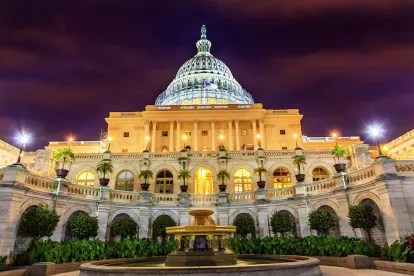This month, the 118th Congress convened in Washington, D.C., ushering in a return to divided government. Republicans now hold a narrow majority in the House of Representatives, while Democrats have retained their slim Senate majority. With few opportunities for bipartisan compromise, the 118th Congress is expected to engage in more frequent, less robust, and more partisan congressional investigations.
Historical precedent and a narrow majority suggest the Republican-controlled House will conduct frequent and aggressive oversight of the Biden Administration. President Biden’s low approval ratings and the upcoming 2024 Presidential Election may incentivize Republicans to conduct oversight on politically salient issues, including immigration, inflation, and crime and public safety. National trends toward political polarization will also continue to influence congressional oversight. Fewer moderate members of Congress and increasingly partisan districts can be expected to result in congressional oversight that appeals to the base of each political party, resulting in a decrease in traditional, bipartisan congressional investigations.
Given this polarized electorate and divided government, the 118th Congress is widely expected to see an increase in majority-led oversight hearings and hyper-partisan investigations. Already, congressional oversight trends are taking shape. In the Senate, a wider Democratic majority will now empower committees to exercise their subpoena authority without Republican support. In the House, Republican leadership has begun outlining investigative priorities, including through new investigative committees and subcommittees.
House Select Committee on Strategic Competition Between the U.S. and the Chinese Communist Party (“CCP Committee”)
On January 10, the House passed H.Res.11 by a vote of 365-65 (including 146 Democrats) that established a new CCP Committee. While Rep. Mike Gallagher (R-WI) is expected to chair the committee, Democrats have not yet named members to the panel. Several, however, have indicated interest in serving as ranking member, including, Rep. Elissa Slotkin (D-MI), Rep. Ro Khanna (D-CA), and Rep. Andy Kim (D-NJ).
The CCP Committee, structured only to conduct oversight and investigations, will likely focus broadly on aspects of U.S.-China competition, including R&D and manufacturing, particularly regarding critical and emerging technologies; the Belt and Road initiative; the Uyghurs, and other topics.
At this point, we see at least two contexts in which the CCP Committee could direct oversight and investigations activity at the business sector. First, the Committee’s oversight of U.S.-China policy could result in scrutiny of Chinese companies with a U.S. footprint as well as U.S. companies operating within China. Second, if Republicans experience significant resistance from the Biden Administration in compliance with Republican oversight, Republicans may seek information from private-sector businesses in regulated industries to help build-out the record those Republicans seek. For example, congressional oversight of export-control enforcement conducted by the Department of Commerce Bureau of Industry and Security (BIS) would naturally implicate large companies that export U.S. goods and technology. Resistance by the Biden Administration to export-control investigations may, therefore, result in requests by the Committee for information and testimony from large technology exporters or large high-tech manufacturers that do business with Chinese firms.
Notwithstanding that most Members of Congress appear committed to having the CCP Committee operate on a bipartisan basis, we see this likelihood as unlikely. In the run-up to the 2024 presidential election, the temptation for the Committee to conduct agency oversight in a way that is intended to hold-out the Biden Administration as “weak on China” will probably be too high to avoid. This temptation may be acute if Rep. Slotkin both co-chairs the Committee and decides to run for the Senate seat to be vacated by Michigan Sen. Debbie Stabenow next year and as Republicans weigh deep spending cuts that some defense hawks are concerned could hit the Pentagon heavily. Notably, after the vote on the resolution, Rep. Gallagher said Speaker Kevin McCarthy (R-CA) told House Minority Leader Hakeem Jeffries (D-NY) that Republicans “want this to be a bipartisan effort, we’re going to appoint serious, sober members. It’s not going to be a circus.”
Select Committee on the Weaponization of the Federal Government
This week, the House of Representatives also voted to approve the formation of the Select Committee on the Weaponization of the Federal Government along party lines, 221 to 211. The Select Committee is a subcommittee of the House Judiciary Committee and is expected to be chaired by Judiciary Committee Chairman Jim Jordan (R-OH). The subcommittee is expected to be comprised of 13 Republicans and 5 Democrats.
House Republicans are expected to utilize the subcommittee to investigate alleged bias in the federal government against conservatives, including by federal law enforcement and the intelligence community. Notably, House Republicans have given the subcommittee the power to oversee ongoing criminal investigations, prompting some Democrats to raise concerns that members of Congress could interfere in investigations that involve Judiciary Committee members.
The establishment of the subcommittee, a key priority of the House Freedom Caucus, is a significant development that may fundamentally alter House Republicans’ approach to congressional oversight. As with existing oversight committees, House Republicans can expect significant resistance from the Biden Administration and federal law enforcement regarding oversight requests from the new subcommittee, particularly requests concerning ongoing criminal investigations. Instead, Republicans may seek information from private individuals and private sector businesses to fulfill subcommittee requests. These requests could include former federal officials, as well as social media and telecommunications companies.





 />i
/>i

